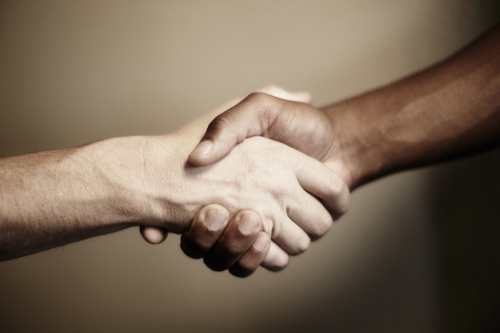Then Jehoiada made a covenant between the LORD, the king, and the people, that they should be the LORD’s people, and also between the king and the people.(2 Kings 11:17)
After many years of terror and chaos, the kingdom of Judah was starting to follow God’s ways. The wicked queen Athaliah was deposed and dead, and the true king – King Joash – now sat on the throne. He was only a boy, so it was critical that he have wise and godly advisers, and God gave him a wonderful guide: Jehoiada the high priest.

Soon after Joash was put into power, Jehoiada did something important. He made a covenant between the LORD, the king, and the people. This formal agreement – called a covenant– was made to make clear the obligations that the king and the people had to the LORD God, and to make clear the obligations that the king and the people had toward each other.
In a sense, this was unnecessary, because Israel had already made a formal covenant with God, centuries before the time of Joash and Jehoiada. In the days of Moses, Israel made a covenant with God (Exodus 24:3-8). But this covenant really was necessary to renew, because Israel had fallen so far from their covenant obligations to God that it was just good for them to once again commit to honor, obey, and serve the LORD.
What I really like about 2 Kings 11:17 is that it reminds me that our relationship with God is also based on a covenant. It is the covenant that Moses and the people of Israel made with God at Mount Sinai (again, Exodus 24:3-8). Ours is a better covenant, a new covenant.
On the night before Jesus went to the cross, He told His disciples that with His death, He would institute the New Covenant (Luke 22:20). This was the covenant God promised in many wonderful passages in the Hebrew Scriptures.
The new covenant concerns an inner transformation that cleanses us from all sin: For I will forgive their iniquity, and their sin I will remember no more (Jeremiah 31:34). This transformation puts God’s Word and will in us: I will put My law in their minds, and write it on their hearts (Jeremiah 31:33). This covenant is all about a new, close relationship with God: I will be their God, and they shall be My people (Jeremiah 31:33).
In the days of 2 Kings 11:17, the covenant was made in the presence of the High Priest and the king, for the people. Aren’t you glad that Jesus is both our High Priest and king?
You can’t make the New Covenant; Jesus already made it through His sacrificial death. But you can receive it, and in a sense you can renew it – once again recognize how great it is, how much you need it, and wonderful it is to receive and relate to God on the basis of the New Covenant.

